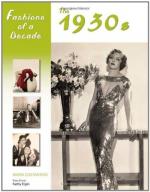|
This section contains 332 words (approx. 2 pages at 300 words per page) |

|
Herbert Hoover was elected president in the economically flush times of the late 1920s. During the 1920s the gross national product of the United States rose an astonishing 25 percent. Millions of Americans purchased refrigerators, washing machines, radios, and cars for the first time. In this economic boom many Americans attributed the nation's success to the ideology of "business Republicanism." They believed that the nation would flourish in proportion to the support that large and small businesses received from government. They supported policies that made mills, mines, banks, factories, and farms more profitable: a protective tariff, right-to-work (that is, antiunion) laws, the gold standard, and a government that purposively restrained itself from intervention in capitalist markets. From 1921 onward, during nearly a decade of dynamic and expansive growth, Americans elected business Republican presidents. Their view was summarized By Republican president Calvin Coolidge in...
|
This section contains 332 words (approx. 2 pages at 300 words per page) |

|




